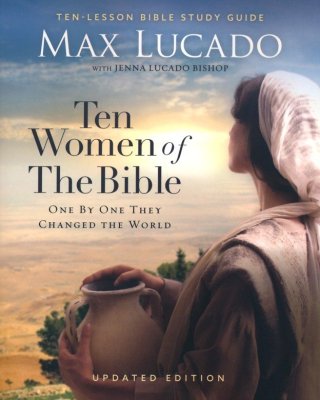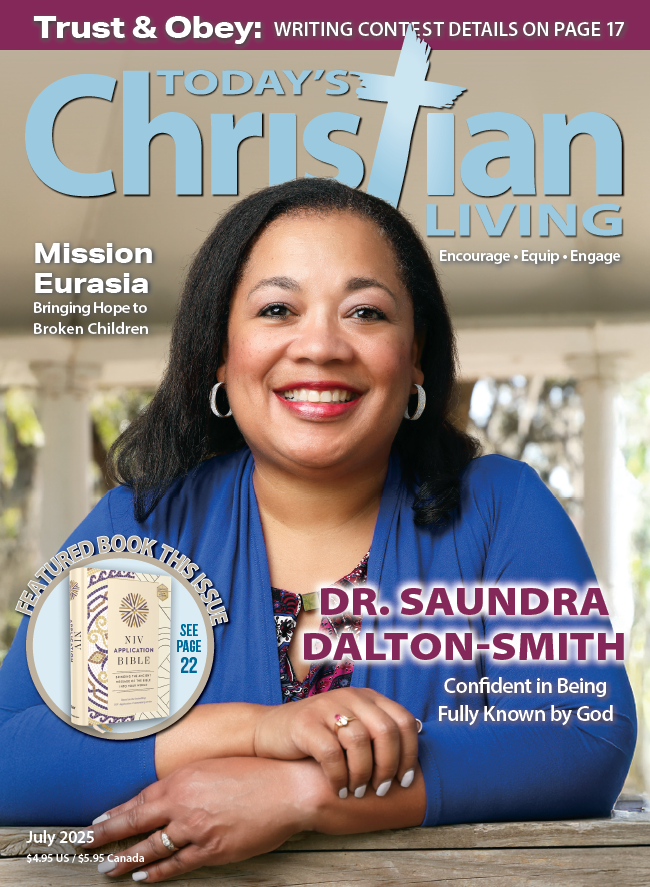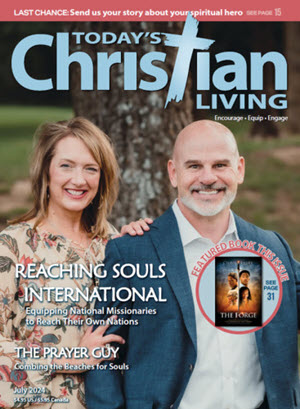
Written by Chuck Cleveland
My brother Barry and I were both only children – that is, he came along almost ten years after me and our worlds seldom touched. We were Exhibit A for the compliant first born and rebellious second child syndrome. I’m married and a conservative Christian while Barry is single, somewhat liberal and a writer/performer of alternative music. We disagreed on almost everything and what was, at best, a strained relationship, deteriorated into twelve years of outright hostility.
From my perspective, the loving thing to do was to have no contact because almost every time encounter turned into an unpleasant confrontation. Of course, if you had asked me if I loved my brother during those years of alienation, I would have responded, “Sure.” Meaning what? Meaning I was concerned about his eternal destiny, for I didn’t want him to perish in hell.
Even while continuing to insist the state of warfare was the fault of my non-Christian brother, I was beginning to come under conviction that I needed to become a more loving, less critical person. Barry and I began to speak cordially, though that was primarily over our mutual concern for our mother’s failing health. However, several months later that led to actual communication. Layers of distrust peeled away and it was then I realized a statement by Bob George in “Classic Christianity” had great significance. He was writing of God’s attitude toward a person but it is also true of horizontal relationships. He observed “Love becomes practically meaningless apart from acceptance.”1
What was true of me, I perceive, is true of many Christians. We are oft times superficial in our relationships, particularly with those outside the faith. We say we love our non-believing family members and acquaintances but the critical question is, do those people think they are loved? And if we don’t take an interest in their ideas and how they arrived at them, how could they possibly think we accept them?
When Mother passed away, we got together for the memorial service and we used that opportunity to deal with a number of personal issues. Clearly, the walls of hostility had come down. A month later I made a tape of some songs (a common interest), two excerpts from Steve Brown sermons and the recounting of how I had experienced an attitudinal change. Almost immediately, I got his response, and, in part, it said,
“I also enjoyed the excerpts from that talk on friendship… The difference between preaching and sharing is sincerity, and sincerity is the honest attempt to communicate. Anyway, I can certainly appreciate the effect these thoughts have had on you and how they inspired you to make positive changes in your life. Aside from enjoying the music and the shared thought, Chuck, do you know what I really liked about your tape? The spirit in which it was made… You know, I feel like I have a brother for the first time in my life, and it feels really good.”
Love,
Barry
Having cited playing excerpts from two Steve Brown sermons in my tape to Barry, let me close by providing you a slightly-modified version of one of them (used with his permission).
“I got a letter last week from a man who is struggling with sexual sins and he said, ‘I’ve never told anyone about my problem.’ And he said, ‘I’m writing to you at major risk, and the only reason I’m doing it is because I’ve listened to you for two years and I don’t think you will condemn me; I think you will help me.’”2
I’m going to frame that letter, because that’s the goal of my life. I want to be the kind of person those who are hurting, who are sinful, who are broken, and who are oppressed seek out.
That’s what Paul did and look at what happened. Paul received Onesimus the thief. He loved him. Paul couldn’t give him anything else because he was in prison. And Onesimus received Christ and there was a new name in the Lamb’s book of life.
Now that I’ve seen it in Philemon, I see it in all over his writings. Paul identified with their hurts, their brokenness, and their poverty. The Four Spiritual Laws are great; the EE evangelism program is great. But when you help the hurting, they are drawn to the throne. You think about that! Amen.
1Bob George, Classic Christianity (Eugene, OR: Harvest House), page 98.
2Steve Brown, Key Life tapes, Philemon-One

Chuck Cleveland lives in Newnan, Georgia and he has contributed articles to four magazines. He’s been a Christian for over 50 years, and he’s been married to Barbara for 48+ years.








